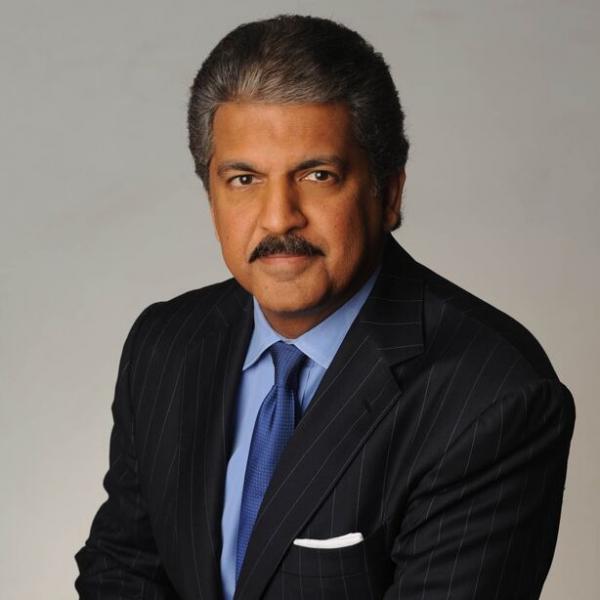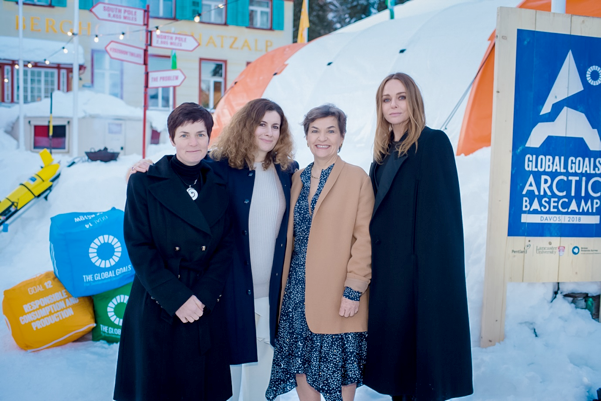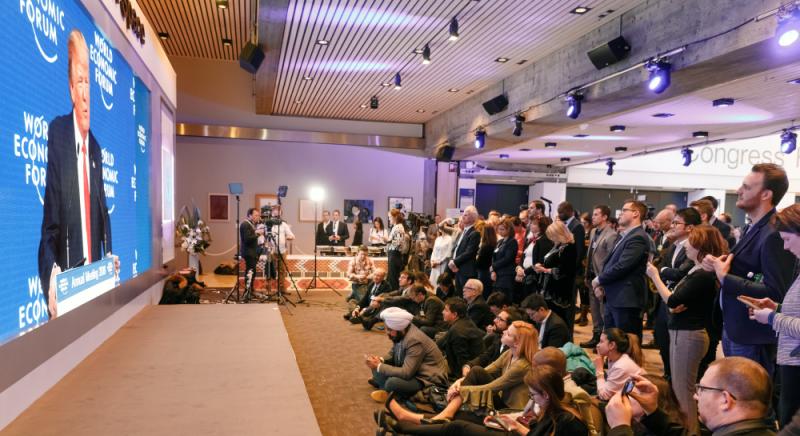Oliver Balch rounds up the main messages from four days in the Swiss alps and hopes initiatives such as science-based targets, RE100, and new circular economy platforms will be kept front of mind
There are three things that every chief executive must have with them when travelling to Davos: a warm jacket, snow boots, and a new report or initiative. So, now the World Economic Forum’s annual shindig is done for another year and business leaders are back at their desk, what did we learn and what will their in-trays look like?
First, and foremost, sustainability is here to stay. Long gone are the denials or debates as to whether “non-financial” or “soft” issues are the preserve of global business. Themes such as citizenship-centred science, a post-oil energy matrix and tax transparency have shifted from side-room workshops to the main stage.
Second, companies are beginning to put their money where their mouths are. Davos 2018 saw a litany of firm, measureable corporate commitments – professional services firm PwC promising to cut its carbon emissions by 40% by 2022 (having cut them by 29% since 2007) through to Coca-Cola pledging to collect and recycle the equivalent of every bottle or can it sells globally by 2030.
Science-based targets
Third, and arguably most importantly, this year’s snow-bound get-together marked time on foot-dragging. Report after report highlighted the surging nature of sustainability pressures. Now they are back at their desks, business strategists have some serious thinking to do, and chief executives some serious decisions to make.
Their to-do lists start with science-based targets. Anand Mahindra, chairman of the eponymous Indian conglomerate, Mahindra Group, laid down an unequivocal challenge to his corporate colleagues: adopt meaningful greenhouse-gas emission targets linked to the Paris Agreement by September 2018’s Global Climate Action Summit in California, which he is co-chairing with Governor Jerry Brown, the UNFCCC’s Patricia Espinosa and Michael Bloomberg.

Anand Mahindra, chairman of India's Mahindra Group.
The Indian tycoon wants 500 global companies to follow his $19bn conglomerate in adopting such a stance. It’s not such a leap, as it happens. The Science Based Targets initiative, a business-targeted coalition, already counts 339 companies acceding to Mahindra’s call. Almost 900 other companies have promised to introduce similar targets before 2020.
His inducement is financial. Energy efficiency measures at Mahindra Group, whose interests include energy-hungry automotive manufacturing and construction, have knocked 58 million KWh of electricity consumption off the firm’s energy bill over the last five years. “That saved us money,” Mahindra said. How much is undisclosed, although the chairman reckons the market opportunities for low-carbon business solutions is as much as $6trn over the next two decades.
RE100
Going fully renewable is another challenge that business leaders need to seriously consider. According to the business membership group RE100, 122 large corporations are now on board, with the idea of achieving carbon neutrality in terms of their energy use. This is a big deal, as the coalition’s annual report reveals. Collectively, the electricity demand of the participating companies (calculated at 159 terawatt hours per year) exceeds that of Malaysia or Poland. Were the companies a country, they would rank in 24th place for energy demand (just below Egypt).
The days of the “D” in Davos standing for empty “discussion” are fast coming to an end. “Delivery” is increasingly the watchword. So, RE100 is quick to note that 25 companies have already achieved their 100% target (mostly through offsetting their fossil-fuel use through investments in renewable power projects). The list includes trend-setters like Starbucks, Microsoft and Marks & Spencer. There’s work still to do. Renewables still make up only one third (32%) of total electricity consumption of RE100 signatories. Most, furthermore, are based in North America (44%) or Europe (31%), with Africa (1%) and the Middle East (<1%) particularly underrepresented.
Again, the resounding message from the Swiss ski-resort is that this is about bottom-line business sense as much as environmental responsibility. The cost of wind and solar power fell rapidly in 2017, with renewables becoming the cheapest source of electricity in 30 countries. By 2020, solar PV-based electricity is projected to beat coal or natural gas-fired generation on price throughout the world. It is a bold chief executive that turns his or her nose up at such a cost-saving opportunity.

Promoting the circular economy and the SDGs at Davos's Arctic Basecamp.
“Circularity” was the third major take-away for business leaders from this year’s World Economic Forum summit. The idea of swapping the take-make-dispose model for one based on recycling, re-engineering and re-use has been growing at pace over recent years (thanks, in no small part, to the singular energies of the Ellen MacArthur Foundation. In the new Platform for Accelerating the Circular Economy, the World Economic Forum had an announcement of its own. The new initiative will seek to “create innovative partnerships … to decouple economic growth from resource use”. The platform’s 40 founding members include Coca-Cola, Shell, Accenture, HP, ING and Suez, as well as global big hitters such as the European Commission, the European Investment Bank, UN Environment Programme and the World Bank.
Factor10
Another new circular economy slogan to take home in their Davos doggy-bags was Factor10, courtesy of the World Business Council for Sustainable Development. Factor10 is geared towards “unlocking” the $4.5trn of economic growth between now and 2030 that the circular economy reportedly represents.
According to accompanying report, The New Big Circle, reducing worldwide resource use by only 1% could save approximately 840 million tons of metals, fossil fuels, minerals and biomass annually, and 39.2 trillion liters of water. Again, it’s the economic case that leads the argument. A 1% reduction in resource use promises potential savings of around $80bn for the global economy, the WBCSD states. It also includes a survey of 78 leading business representatives, 96% of whom believe circular economy models will be important for their companies’ future success. More than half (51%) say such models are already adding to profits.
It is of course possible that, what with all the canapés to eat and conflabs to be had, the sustainability message failed to get through to some business leaders. But that would not be for lack of trying from the World Economic Forum. Its thirteenth annual Global Risks Report serves as a bucket of snow-chilled water for sustainability sceptics. “We have been pushing our planet to the brink and the damage is becoming increasingly clear,” said Klaus Schwab, WEF’s chairman,in the introduction to the report. All five main metrics for evaluating environmental risk rank higher than average for both likelihood and impact over a 10-year horizon.

President Trump sounded a different note at Davos. (credit: Drop of LIght/Shutterstock.com)
Among WEF’s main warnings is the disruption to agricultural system that could result from rising temperatures and more frequent heatwaves (2017 was the hottest year on record without an El Niño). Monoculture production makes the world food system especially vulnerable, since about 75% of the world’s food comes from just 12 plants and five animal species.
Global carbon dioxide emissions rose for the first time in four years, to 403 parts per million (up from a pre-industrial baseline of 280 parts per million), the report’s authors note. The oceans’ capacity to absorb future global warming may be reaching saturation point too. “There is no scope for complacency about the sufficiency of global efforts to deal with climate change and the continued degradation of the global environmental commons,” the organisers of the Davos summit conclude.
With the world’s highest-paid executives having now returned home in their private jets, Davos may be out of sight, but hopefully it won’t be out of mind. As Schwab pointed out: “We have to work together – that is the key to preventing crises and making the world more resilient for current and future generations.” That’s an ongoing priority, not one just for four days in the Swiss Alps.



